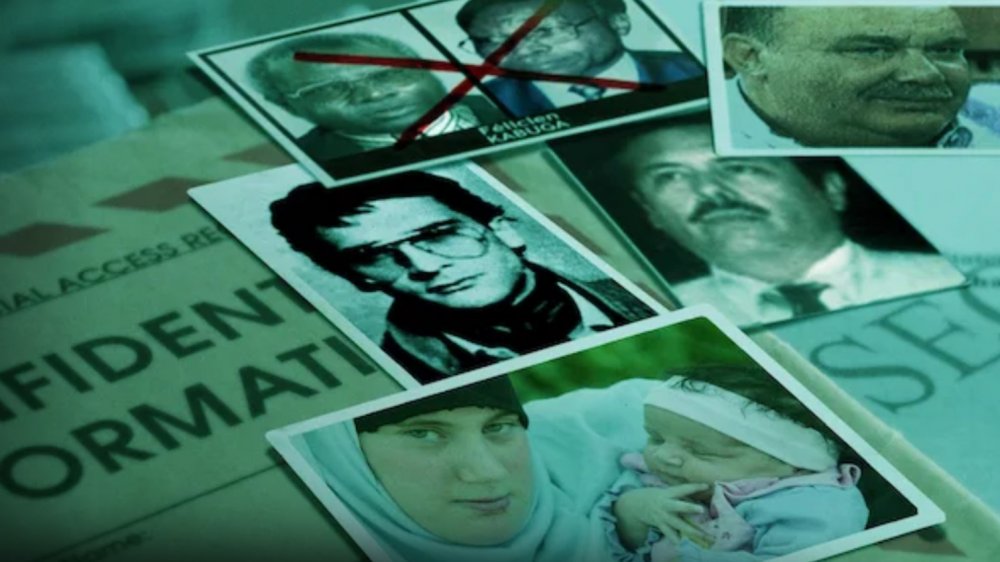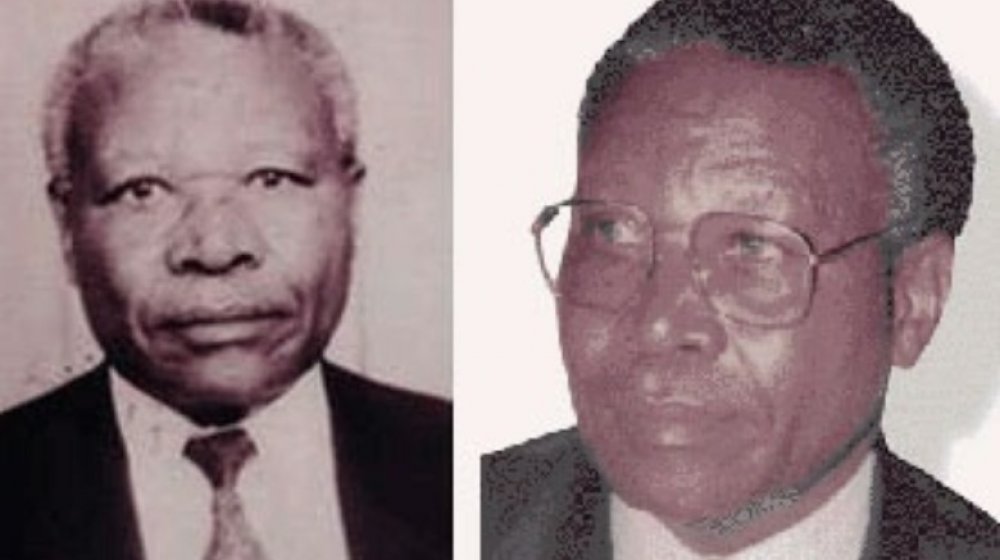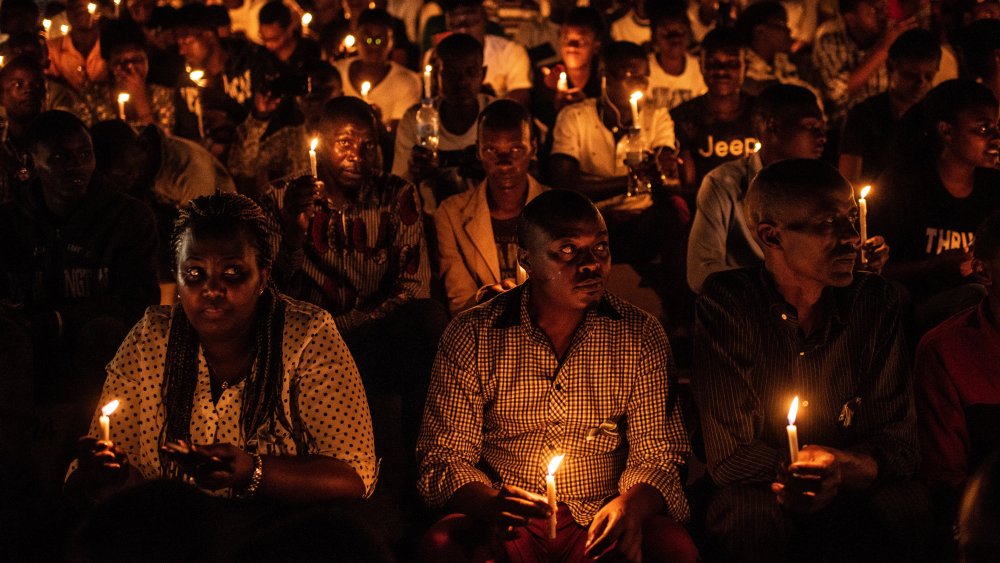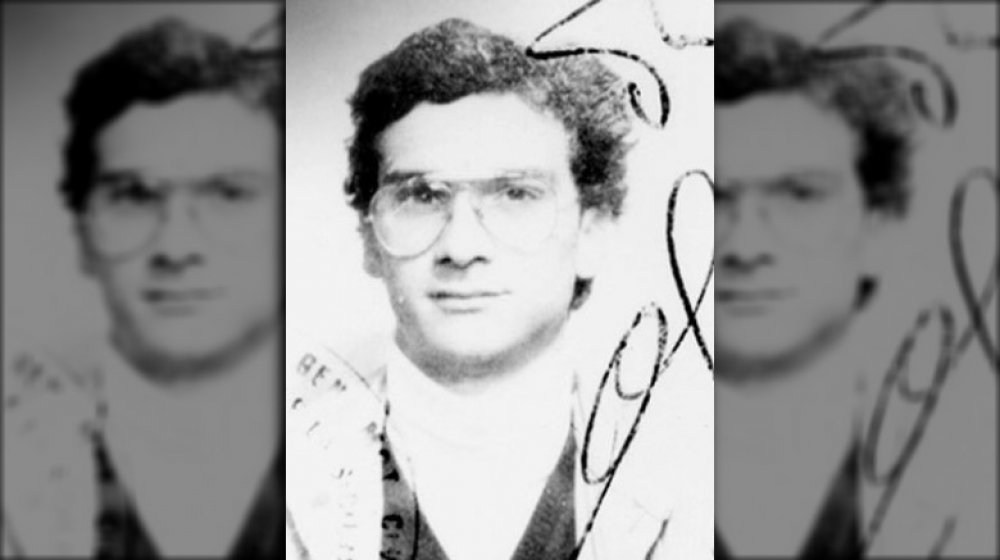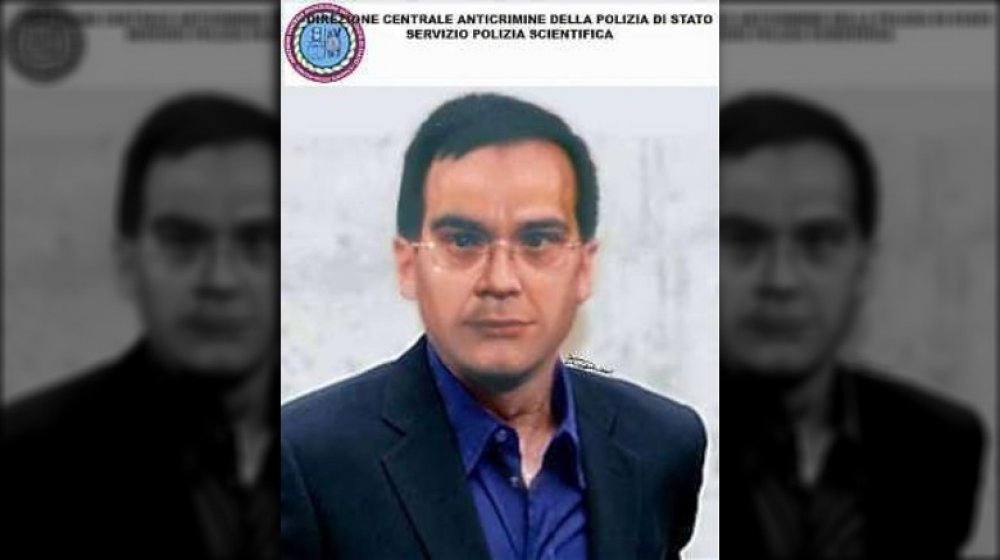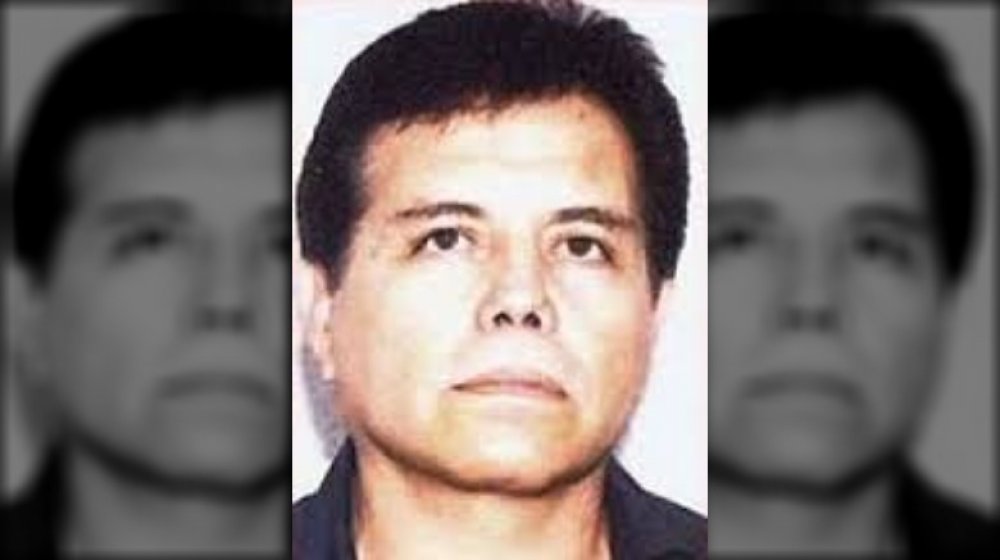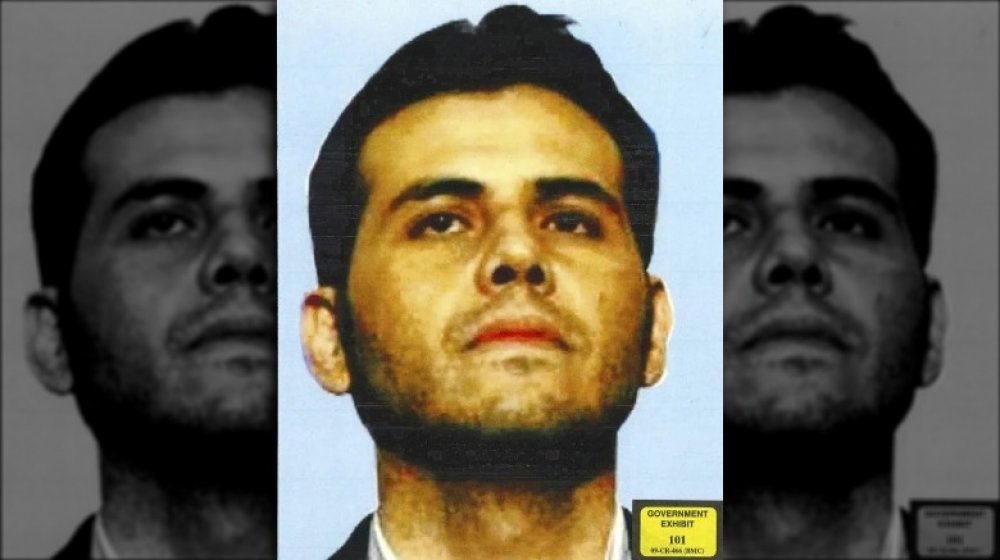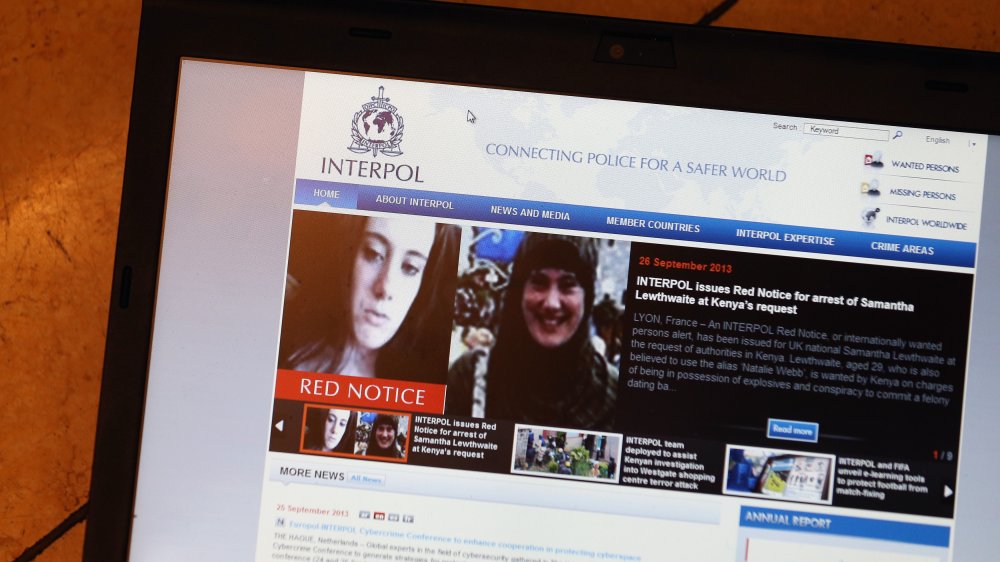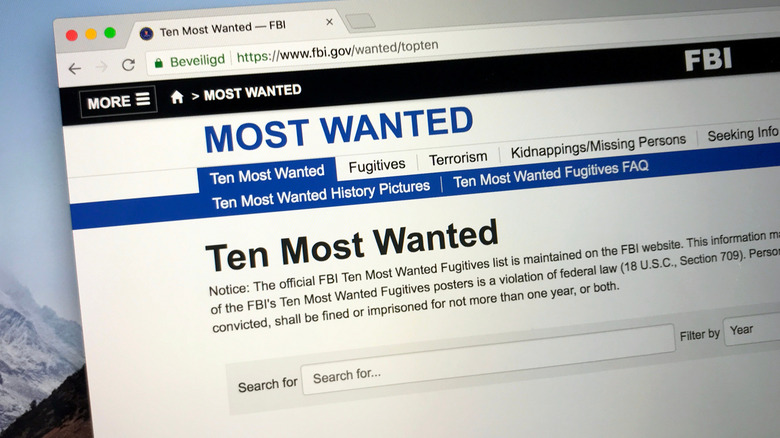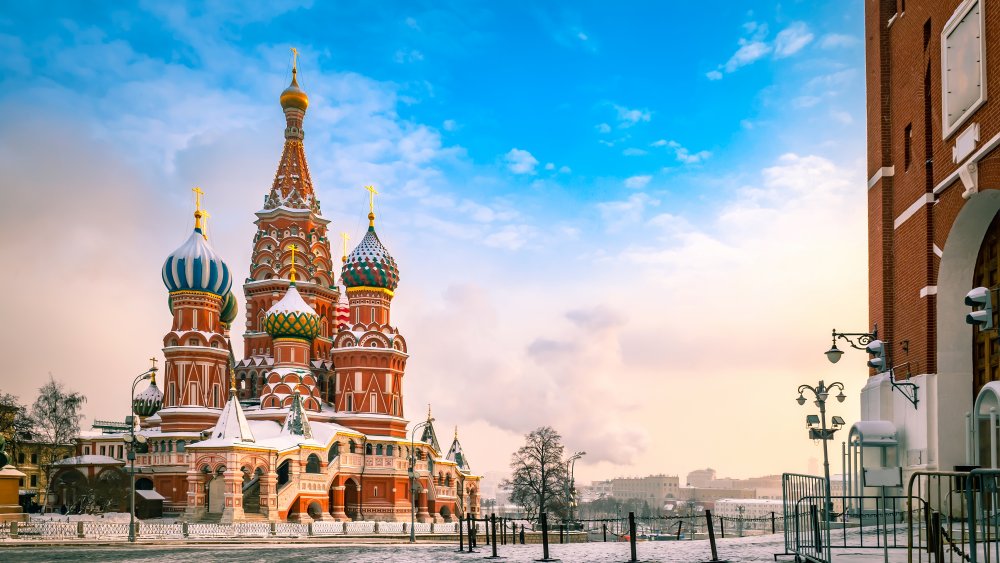Netflix's World's Most Wanted: Everything You Should Know
There's something undeniably fascinating about those who live on the wrong side of the law. It's why true crime dramas are so popular, after all: it's not just that we're intrigued by what must go on in the hearts and minds of some of the world's most evil people, but there's something else going on there, too. We want to be reassured: we want to know that the bad guys are going to be brought to justice, and that the world is going to be made a safer place with them off the streets.
In 2020, Netflix took on some of the biggest and most notorious names on the world's most wanted list. They're some pretty terrifying people, and here's the strange thing: as GQ notes, most of us don't know too much about them.
And that's... odd. Their criminal empires stretch across dozens of international borders, they're worth billions upon billions of dollars, and there's enough blood on their hands to fill at least a few Olympic-sized swimming pools. But somehow, they've managed to stay under the radar... and free. Netflix's World's Most Wanted is giving the globe a peek behind the curtain, so let's talk about what basics you should know going in.
Felicien Kabuga: Financing a genocide
Felicien Kabuga started small: according to those who knew him years ago, he got his start selling used clothes and cigarettes in a Byumba market (via the Anadolu Agency). From there, he opened a few stores and by 1994, he was rich enough to play a major role in financing a genocide.
First, what genocide are we talking about? In 1994, there were 100 days of widespread violence, murder and extremism in Rwanda starting when then-President Juvenal Habyarimana's plane was shot down. The Hutus blamed the Tutsis, the Tutsis claimed they had been set up, and lists of names were handed out. At the end of the 100 days, the BBC says around 800,000 Tutsis had been slaughtered.
So, where does Kabuga come in? The Hutu extremist radio station Radio Television Libre des Mille Collines (RTLM) absolutely played a major role in the genocide: it regularly broadcast hate propaganda, encouraged the slaughter of Tutsis, and even broadcast names of people on the hit list. That radio station was financed by — you guessed it — Felicien Kabuga. Kabuga also served as the station's president, controlled its programming, and was also behind the financing of tons of the extremists' weapon of choice: the machete. By 1998, he was indicted on 11 counts by the International Criminal Tribunal for Rwanda, but he was already in the wind.
Felicien Kabuga: The one who's been captured
In May 2020 — presumably between the show's filming and its release — the BBC announced that Felicien Kabuga had been arrested after more than two decades on the run. Surprisingly? He was found living in an apartment in Asnieres-sur-Seine, a suburb of Paris, France. So... how'd he do it?
His life on the run was made possible by his 28 aliases, his high-powered connections across several continents, his fortune, and his family. He narrowly avoided capture in Kenya several times, and it became very clear that following his trail was courting death: a freelance reporter named William Munuhe was killed in 2003. Others followed the trails of people pretending to be Kabuga, and still others gave up when the death threats started coming.
Kabuga was hunted across Switzerland, Germany, Kenya, Madagascar, Burundi, and finally to France, where the 84-year-old fugitive was finally arrested. While in court at a bail hearing, he testified (via the BBC): "All of this is lies. I have not killed any Tutsis. I was working with them." Kabuga was on the run for so long that the tribunal responsible for overseeing the prosecution of those responsible for the genocide had already been disbanded — now, he's the responsibility of The Hague. Even as the courts were trying to decide where he was going to be put on trial, his defense asked for clemency, based on his age and his health issues. Prosecutors insisted that he was still a flight risk.
Matteo Messina Denaro: The Cosa Nostra crime boss who thinks he's Robin Hood
Matteo Messina Denaro's life on the run started in 1993, and there's the weird thing — since then he's achieved something of an almost mythic status among supporters. Denaro, says DW, is considered the last fugitive boss of the Sicilian Mafia, and in spite of being in hiding for decades, he's used that time to rise through the ranks in a terrifying way.
Denaro got his start in the 1980s, says The Guardian, a time when he preferred to wear Rolex watches and Versace clothes, killed anyone who protested his tendency to carry out affairs with any woman who caught his eye, and honed his mercilessness: he infamously strangled the pregnant girlfriend of a rival he'd murdered. But it was 1993 that was a turning point — that's when he organized a bombing spree in mainland Italy, designed to send a very deadly message that stricter laws governing the sentencing of mafiosi were not going to be tolerated. That was the same year he was behind the kidnapping of an informant's 11-year-old son: when the informant refused to back down, the boy was killed and his body dissolved in acid, a crime that earned Denaro another conviction in absentia.
One investigator summed up Denaro like this: "What counts with Messina Denaro is his iron will and his huge ego. Ultimately, he doesn't care about his family, he doesn't even care about the mafia — all that matters to him is not being caught."
Matteo Messina Denaro: Chipping away at his empire
Authorities may not have been able to bring Denaro to justice for decades, but his empire is slowly being chipped away.
According to The Guardian, not everyone — even those on the same side of the law as Denaro — are happy with his methods. Rather than falling back on the old cliche of financing his ventures with protection money extorted from businesses, Denaro has opened his own businesses with help from a frontman. That includes a massive shopping center, but that hasn't been without pushback: locals call it too "American." Then, there's the business owners — like Elena Ferraro — who have stood up to him, and refused to allow him to use their businesses as cash funnels.
Still, extremes are there. Some still want to see Denaro legitimized with a mayoral appointment and he's still rumored to have the support and protection of the Trapani Freemasons, but pieces of his empire are slowly falling. In October 2019, The Guardian reported on the arrest of one of his biggest financiers, the so-called "king of wind." Vito Nicastri was credited with being a major contributor to Denaro's time on the run, and when Nicastri fell, assets including 43 companies, 66 bank accounts, and 98 properties were confiscated. Nicastri — who sold wind turbines across Spain, Denmark, and Malta — was a key player in the continued elusiveness of the man who once claimed, "I filled a cemetery all by myself."
Ismael Zambada-Garcia: Mexico's mysterious drug kingpin
According to the US State Department, there's one key person sitting between Colombia's cocaine supplies and their customers in the US: Ismael Zambada-Garcia. He's also known as "El Mayo," and Insight Crime says that he's "Mexico's Last True Capo."
Some say that he came to power after the fall of "El Chapo" — Joaquin Guzman Loera. Others say that he was really the one running everything this whole time, and just preferred not to broadcast how in-charge he really was. Regardless, he quickly rose to the head of the Sinaloa Cartel and in turn, they became the most powerful drug trafficking organization in the world, with contacts and connections in somewhere around 50 different countries.
And he's more than just the head of the Sinaloa Cartel: he's also bringing all the other cartels under his control, eliminating in-fighting, and essentially, he's sitting at the head of something that might be described as a criminal megastructure. If there's any doubts as to how important this guy is in the cocaine trafficking world, the State Department's reward for information that leads to his capture is a cool $5 million.
Ismael Zambada-Garcia: The son that turned informant
In 2019, Rolling Stone reported on some super interesting developments that were going on in El Mayo's world: his son, Vicente Zambada Niebla, had been sentenced to 15 years in prison for his role in his father's drug trafficking network. But here's the thing — it was likely that he was only going to serve five of those years, because he had not only pleaded guilty to the charges, but he turned informant and forfeited more than a billion dollars in restitution for his actions.
El Mayo had spent years preparing his son for life in the confines of his criminal enterprise and when Vicente turned, he was a "nearly bottomless well of information" about every angle of the business, from locations to alliances. He was present at meetings, knew where bodies were buried, overheard deals and pacts, and said that he had already tried to leave the network several times, but was drawn back in. Why? He was worried about the consequences that his family would suffer should he turn.
At his trial he said, "I believe every man, or person, lives on the basis of good or bad decisions, and I have made bad decisions, which I truly regret. Today, I feel like I can be a better father, a better husband, a better son, and most of all, a better human being." What will this mean for El Mayo?
Samantha Lewthwaite: From schoolgirl to White Widow
What is it that makes a seemingly ordinary British schoolgirl drop everything, marry a terrorist, and run off to join her new jihadist family?
That's the question that looms over Samantha Lewthwaite, a woman who first rose to international attention in the wake of the 7/7 bombings in London. It was her husband — Germaine Lindsay — who died while setting off a bomb at the King's Cross/Piccadilly Line Underground Station. At that station alone, there were 26 casualties (via the BBC). The media dubbed her the White Widow, and although she initially condemned her husband's actions, it soon became clear there was much more to the story.
Lewthwaite disappeared, and since leaving the UK, she's been connected with multiple terrorist attacks in various countries, including the 2012 grenade attack in Mombasa and, according to The Guardian, she isn't just involved, she's often described as one of the people in charge. Is she? No one's quite sure. What is known is that she has since remarried (perhaps twice), had several more children, and remains underground.
Samantha Lewthwaite: Writings of a radicalized every-woman
While there are a lot of things that just aren't unknown about the path Lewthwaite's life took after the London bombings, one thing that law enforcement does have is a lot of her writing. And it's provided a strange glimpse into her life.
In 2011, Kenyan police seized some of her notes (via The Guardian). They included this: "Allah blessed me with the best husband for me. In fact, exactly what I asked for when I made du'a before marriage. I asked for a man that would go forth, give all he could for Allah and live a life of terrorizing the disbelievers as they have us." And right alongside of that? Her ideas on what a home life should be: "When a man comes home — wife beautiful, food prepared, kids clean — immediately he will forget the pain of his day, he will always want to come home. When the wife would hear her hubby, she would take his coat and shoes, feed him."
Then, in 2013, something else surfaced alongside workout videos, research on making bombs, Taylor Swift hair tutorials, and explosives research: a poem to Bin Laden. It read, in part: "Us we are left to continue what you started. To seek the victory until we are martyred. To instill terror into kuffar."
Her whereabouts remain unknown, but she had been linked to several addresses in Kenya.
Semion Yudkovich Mogilevich: A little bit of everything
Semion Yudkovich Mogilevich is involved in a list of things that's unthinkably long, but let's start with what got him added to the FBI's Most Wanted List. That happened in 2009, when he got the attention of law enforcement for his part in a multi-million dollar fraud scheme that centered around his YBM Magnex International, its Philadelphia headquarters, and investors who lost an insane amount of money — around $150 million. The reason that was pretty much the only thing listed on his sheet was because of jurisdiction — it happened on US soil, so the FBI could get involved (although no, he never even visited Philly). Most of his other dealings happened outside the States.
Ozy says he's one of the most dangerous people in the world, and he's been linked to: drug trafficking, murder, prostitution, weapons trafficking, extortion, and all kinds of fraud... too much fraud to list, in fact. Let's just put it this way: among the many, many, dealings was a money-laundering scheme hatched and carried out in the late 1990s, where his bank — the unabashedly-named Inkombank — scored a mind-numbing $10 billion with a heating oil scam.
The FBI estimates Mogilevich has a vast money-laundering network that spans at least 27 countries. Special Agent Peter Kouwenhoven summed him up like this: "With him, it's all about money — money and influence. And the really chilling thing is that he seems willing to work with any criminals, regardless of their ideology."
Semion Yudkovich Mogilevich: Protected by the safety of Mother Russia
And here's the thing: Ozyozy says that everyone kind of knows where he is — in Moscow. Remember Alexander Litvinenko? Right before he was poisoned, he mentioned that Mogilevich simply needed to reach into his multi-billion dollar fortune and go knocking on the door of his old buddy Vladimir Putin when the heat got a little too hot. And at the time, it was also said that he was living comfortably — and publicly — in Moscow, where his only concession to the charges against him were a security detail.
Litvinenko described Mogilevich's relationship with Putin as "good," and according to Business Insider, his primary residence in Moscow allows him to keep in close contact with the Bratva. That's the Russian mob, and as just one example of how deep their influence goes, consider this: Russia supplies about 30 percent of Europe's gas, and guess what the name of the largest pipeline is? Bratstvo. And yes, Mogilevich sits at the top of that company, too.
Bottom line? Russian police have definitely arrested him, but the charges have always been dropped. And given that there's no extradition agreement between Russia and the US, it's likely that Mogilevich will remain free, continue doing what he's doing, and making his billions.
How successful are these kinds of shows?
So here's a question: how effective are these shows, when it comes to bringing fugitives to justice? Is someone going to realize that Bob from next door is a wanted terrorist? That Sandy from the bus stop has been running from the law for years? Is there a very practical reason for these broadcasts — do they really help law enforcement? — or are we just tuning in for a bit of voyeurism?
Let's take an example a little closer to home: America's Most Wanted. Audiences tuned in to that show for an impressive 25 years, and it did a ton of good. Viewer tips saved 63 missing kids, and ultimately led to the closure of the kidnapping case of Elizabeth Smart. She had been missing for seven months when she and her kidnapper were recognized, and she was returned to her parents. Viewer tips have also brought 1,203 fugitives to justice — including 17 people that were on the FBI's Most Wanted List (via CBS News).
Longtime host and creator John Walsh knows that sometimes, justice doesn't happen overnight. After all, it took him 27 years for him to get any kind of closure regarding the abduction and brutal murder of his son, Adam (via ThoughtCo.).
So... it's entirely possible that you might recognize someone from Netflix's World's Most Wanted... just don't approach them.
